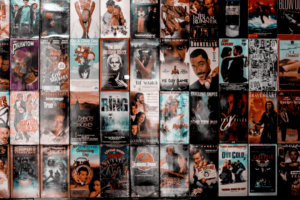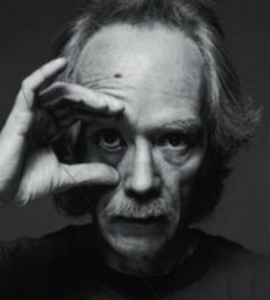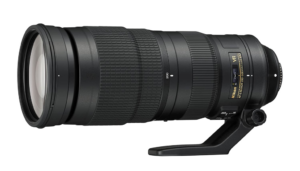A videographer is a professional who records live events and video productions. Videographers work on relatively small productions, including:
- Documentaries
- Short films
- Weddings
- Legal depositions
- Birthday parties
- Sporting events
- Commercials and product demonstrations
- Training videos
They often work alone with a small team of light and sound technicians. In some cases, they may be the only camera person. However, they may also work with other camera operators.
A good videographer can help people relive special or key moments of their life over and over again. They can also help the makers of short films and documentaries bring their stories to life.
There are two main types of videographers:
- Corporate videographers work for a single company creating promotional and training videos.
- Freelance videographers work for a range of clients on a variety of short-term projects.
Videographer vs Cinematographer
Videographers work on much smaller scale projects than cinematographers, who work on film and television sets. As a result, the crews that videographers use are also much smaller. In some cases, videographers work alone.
Historically videographers used electronic media, while cinematographers worked with film. The rise of digital cameras has made this distinction blurrier. While some cinematographers still work with film, others favor digital shoots.
Videographers also have a more hands-on role shooting film than cinematographers, who rarely step behind the camera.
Despite these differences, some videographers have started calling themselves cinematographers. These videographers feel the term cinematographer has more positive, professional connotations. This practice is most common among videographers with DSLR cameras, as they create more cinematic looking videos.
What Are the Duties of Videographers?
Videographers perform a range of professional tasks. Freelance videographers usually have more responsibilities than corporate videographers. Their common duties may include:
- Discussing video needs and strategy with clients or company stakeholders
- Operating the camera during shooting
- Managing a small crew of light and sound technicians and other camera operators, where applicable
- Maintaining and repairing cameras, lighting, sound, and editing equipment
- Editing raw footage into polished video presentations
Are You Suited to Be a Videographer?
The most successful videographers typically share common personality traits. If you have the following characteristics, you could make a good videographer:
- Artistic flair and creativity
- Passionate about storytelling and the video medium
- Expressive and articulate
- Original and innovative
- Warm and engaging personality to make self-conscious people more comfortable in front of the camera
- Enterprising and self-motivated, especially freelance videographers
Common Skills of Videographers
Videographers use a variety of skills in their professions. Corporations, clients, and agencies hiring videographers look for candidates with the following skills:
- Verbal communication, including active listening to understand job briefs and give crew instructions
- Confidence using graphics and video software including Final Cut Pro, Sony Vegas Pro, Adobe Premiere Pro, Adobe Photoshop, Media Encoder, and After Effects
- Understanding of camera operation and troubleshooting solutions
- Leadership for managing a video crew
- Organization and multi-tasking
What Is a Videographer’s Workplace Like?
A videographer’s workplace often changes as they move from project to project. Corporate videographers may spend a lot of time in their workplace’s studio. However, they may spend time on location shooting commercials and covering corporate-sponsored events. Freelance videographers have more variety in their workplaces. They may work indoors and outdoors, close to home or in remote locations. Since outdoor work is common, videographers should prepare for any weather event.
What Is a Videographer’s Salary?
The average salary for videographers in the United States is $68,600 per year. Typical salaries vary from $54,600 in the 25th percentile to $82,500 in the 75th percentile. Salaries vary depending on experience and the client’s budget.
Corporate videographers often make more than freelance videographers as they have steady, year-round work. However, experienced freelance videographers may make more for lucrative projects than corporate videographers.
Tips on How to Become a Videographer
People become videographers in a variety of ways. Securing work can be competitive, but these tips can give you an edge over other applicants:
- Attend workshops. Videography workshops can help you learn more about operating a camera, filmmaking and editing techniques, lighting set-ups, and other topics.
- Get a good video camera. A videographer is only as good as their tools. A good video camera is a must, especially if you become a freelance videographer since you will need to supply your own equipment. Even if you work in the corporate space, having your own quality video camera will help you refine your craft. DSLR cameras are good choices for beginners.
- Earn a related degree or diploma. Formal education isn’t necessary for a videographer, but it can set you apart from other applicants. Qualifications in film theory, video editing, cinematography, and other related disciplines can all give you an edge.
- Apply for internships. An internship can give you hands-on experience using a camera and learning how working sets operate. You may find relevant opportunities with local TV stations, film studios, and video agencies.
- Get a mentor. A good mentoring relationship with a professional videographer can help you through your career. Your mentor can give you advice about breaking into the industry. You may be able to shadow them on the job or start working with them in a paid role. Watching how they work can give you ideas about executing shots and troubleshooting problems. They may also have other industry contacts they can introduce you to.
- Make your own films. You don’t need to wait for paid opportunities to start making videos. Experiment with your camera in your own time. Perhaps you could create a film with some friends or volunteer to film a friend’s milestone birthday party. All these projects can help you build your resume.
- Promote yourself. The internet makes marketing yourself so easy. Create a website or online portfolio showcasing your work. Make professional social media accounts and keep them up to date with what you’re doing. Encourage your friends and family members to share your posts to spread the word. Remember to include your contact details on all pages so potential clients and companies can get in touch.
- Join a professional film organization. Joining a professional film organization can help you build your network, find job opportunities, and connect with like-minded people. Some groups are general while others focus on certain types of videography. Research the options in your area to find the best fit.
- Apply for jobs. The more applications you submit, the better your chances of finding work as a videographer. Search online job advertisements and approach companies you like to see if they have unlisted roles. Don’t be afraid to start with small, lower-paying jobs to build your resume.
- Keep developing your skills. Videographers always have more to learn. Keep your pulse on the latest videography trends in the media and look out for new courses that can expand your knowledge.
What Do People Hiring Videographers Consider?
Individuals and businesses consider several things when determining which videographer suits them best. These include:
- The style of video they want
- What elements they want filmed
- How long they need the videographer for
- How comfortable they feel talking to the videographer
- What the videographer’s samples look like
- What other people say about the videographer
Working as a videographer is an excellent way to express your creativity and get involved with events in your local area. If you’re interested in becoming a videographer, you can learn more about film and how you can improve your skills by applying to the Nashville Film Institute here.
[raw]













